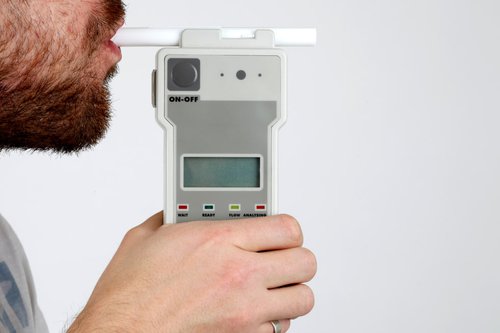Validity of Field Sobriety Tests in Canadian DUI Arrests

Canadian motorists are often surprised to learn that refusing or failing to comply with an officer's demand to submit to roadside standardized field sobriety testing (SFST) is a criminal offence that carries the same penalties as a DUI conviction. In 2022, Canadian police charged more than 3,500 motorists with failing to comply with an SFST demand or other roadside screening, according to Statistics Canada.
When police make an SFST demand, motorists only have a few moments to decide whether to submit to the testing or risk arrest. With no right to consult a lawyer before deciding, you might wonder what you should do if faced with such a dilemma.
The expert criminal defence lawyers at TorontoDUI will tell you that you should almost always comply with police demands for SFST or other roadside screening. The evidence needed to convict you for refusing a demand has a much lower threshold than that required to convict you for impaired driving. That said, a physical disability that limits your ability to undergo the testing can provide a valid defence against refusing SFST in some cases.
Now that we've advised you about what you should do if the police demand that you submit to field sobriety testing, let's take a closer look at SFST's role in Canadian impaired driving laws.
How Police Assess Potential Impairment
Police are trained to recognize alcohol and drug impairment and subjectively assess motorists for potential impairment. Erratic driving patterns often give officers with the first clue that a driver may be impaired, but police are legally allowed to assess any motorist for impairment. Once police begin interacting with a driver they've stopped, they closely monitor appearance, physical movements, how they respond to questions, and whether the vehicle's interior smells like alcohol or drugs.
If the erratic driving and other signs of alcohol or drug use give an officer "reasonable grounds to suspect impairment," they can demand that the driver perform the SFST, provide a breath sample into an approved roadside alcohol breath screening device, or provide a bodily substance sample to screen for drugs. Note that while police must have probable cause to demand an SFST, 2018 changes to federal impaired driving laws allow them to demand roadside alcohol or drug screening from any motorist without such cause.
Given the enhanced ability roadside screening provides police in assessing impairment, their use of SFST might seem obsolete. However, not all police officers are trained in and carry roadside screening devices, and SFST provides them with additional evidence to support the DUI charges. In particular, many police departments lack roadside screening devices that target drugs, so SFST remains a primary tool in identifying and arresting drug-impaired driving suspects.
What is a Standardized Field Sobriety Test?
Standardized field sobriety testing involves three tests trained police officers use to assess a driver's ability to safely operate a motor vehicle. The two physical tests and one observational one allows officers to judge whether alcohol and/or drugs are affecting the motorist's coordination, motor skills, and balance. Based on test results and other potential evidence, an officer can either allow the motorist to proceed on their way or arrest them for DUI and further alcohol breath sampling, bodily fluid drug sampling, or 12-step drug evaluation .
Section 254(2) of Canada's Criminal Code gives police the authority to demand an SFST or roadside screening. According to regulations, the physical coordination tests of the SFST include:
- The horizontal gaze nystagmus test— to conduct this test, the police officer asks the driver to look at an object as they move it from side to side in front of their face. The officer watches the driver's eye movements to see if they can smoothly follow the object and assesses the level of nystagmus—involuntary jerking of the eyeball—naturally occurring when the eyes reach the periphery. Intoxication causes exaggerated nystagmus to appear before the eye nears the edge.
- The walk-and-turn test— In this test, the officer asks the driver to take nine heel-toe steps straight, turn on one foot, and repeat the action in the opposite direction. Signs of impairment may be evidenced by struggling to keep balance, not touching heel-to-toe, losing count of steps, making an incomplete turn, and other missteps.
- The one-leg stand test— to complete this test, the driver is asked to stand with one leg six inches off the ground and count a numbered sequence for about 30 seconds. Signs of impairment include failing to keep the foot up, balance issues, swaying, losing count, and any struggles to maintain balance.
Validity of SFSTs in Court
If your DUI arrest involved an SFST, the Crown will submit the test results as supporting evidence. Depending on the type of DUI charges, your defence lawyer can challenge whether the officer had met the "reasonable grounds" threshold for demanding the SFST or challenge the SFST results themselves. If the defence can prove that the officer lacked reasonable grounds to make the SFST, then the court may void any resultant evidence collected by the police.
Challenging the SFST results on their own merits is generally most effective when police have charged you with impaired driving without blood alcohol or blood drug concentration level evidence. In these impaired driving cases, the Crown is trying to prove impairment based on observational evidence. The SFST is highly subjective, and any doubts your defence lawyer can raise about the test results weakens the Crown's overall case. Research conducted on the three SFST tests suggests that their accuracy to correctly identify intoxication in drivers ranges from about 65%-75%, which is not that high. Additionally, your lawyer may be able to highlight numerous factors that may have skewed results. For example:
- Wet or uneven ground.
- Improper instructions from the officer.
- Physical limitations.
- Distractions from passing traffic.
- Naturally lacking in coordination.
- Conditions affecting the eyes (stye, stigmatism, etc.).
As with any evidence, the more reasonable doubt your defence lawyer can raise, the weaker the Crown's case becomes.
Secure an Effective DUI Defence with TorontoDUI
The skilled lawyers at TorontoDUI closely examine all evidence and the Crown's narrative about the alleged offence to strategize the most effective defence against DUI charges in the Greater Toronto Area. If you or a loved one has been arrested for DUI, contact TorontoDUI for your free initial consultation.
